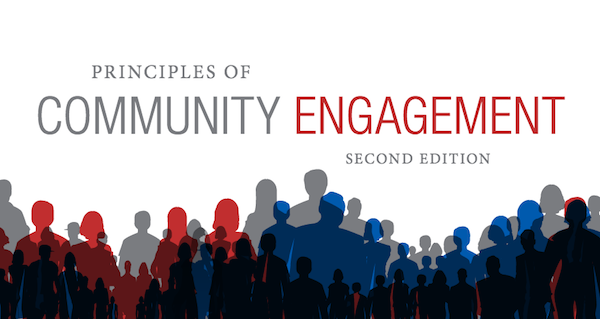From the email box: One of my book followers is doing something very brave for her, volunteering at her branch library. It’s a little branch with a lady running it, who is something out of the 1950’s — and not in a good way. It’s quiet. It’s serious. And it’s falling apart without any new visitors at all. So, this lady is asking her new one-day-a-week volunteer to “do something†to get new people to come into the library.
I’ve been giving my friend lots of ideas, based on what I see at my own very vibrant branch library – including mothers’ clubs, reading hours and clubs, tech training, etc. But I wonder if you are aware of some source of inspiration to help library workers that are very low on the ladder, yet eager to invite new energy to a branch? Maybe you have a clever list of the easiest and most successful types of library programs? What seeds can they plant and how often should they be watered?
I think that is a good idea. First off: Five Minute Librarian is made for your friend
Lots of ideas and a lot of “turnkey” ideas out there. But some of this will depend on what the library community needs. I went to a really excellent program at the VT Library Association conference this year about community engagement (coincidentally, something I teach at University of Hawai’i’s LIS school) and she talked about similarly underutilized and underloved library and some stuff they did. A lot of it boiled down to “Help the community solve its own problems and don’t just focus on “library” stuff” Here’s the whole talk from EricaFreudenberger (zip file)
So some of it may be things your friend can do on her own, or some of it may be getting the current librarian on board with some stuff. Speaking of boards, it might be useful to see what is UP with the board to see if something could be addressed that way, maybe new blood there (your friend or a friend of hers) could help nudge things along in that direction.
What I often think about is the idea of multipliers. Like, what thing that the library has could be serving lots of people (at once, in a row, whatever) and it could be something as simple as AC in the summer, heat in the winter, a place for the Ham Radio club to meet, lego night, movie night, community quiltmaking, whatever. How can the library multiply energy that already exists in the community? Here’s a completely lateral way of looking at it but a look at what Community engagement means to a totally different field, in this case the agency for toxic substances and disease registry. Some ideas sometimes can be better if they don’t come from a library, per se, but some other field. See what you think. Here’s the list of links for things we looked at as part of my community engagement class, maybe something will spark your interest…
Engagement Toolkit – Links
Central link repository. Dictionary definition of community.
Class Reading
- Expect More by David Lankes
Professionalism
- Vocational Awe and Librarianship: The Lies We Tell Ourselves
- The Radical Syllabus: A Participatory Approach to Bibliographic Instruction
- Art is Information, Part I: Exploring the research methodologies of artists in Beyoncé’s ‘Lemonade’ #libeyrianship
- Letter to The Smarter Library: A Vision from the Front Page of Wikipedia
Culture & Inclusion
- This column will change your life Are you an Asker or a Guesser?
- Define Gender Gap? Look Up Wikipedia’s Contributor List
- Ditch Holiday Programming – from School Library Journal
- Holiday Celebrations in the Spirit of Inclusion – from Society for Human Resources Management
- Analyzing the School Holiday Calendar – a student engagement lesson from Teaching Tolerance
- ALA’s Banned Books poster, that one year
- ALA’s list of Celebration Weeks and Promotions, including Library Card Sign-up Month
Equity & Justice
- “White Privilege: Unpacking the Invisible Knapsack” and “Some Notes for Facilitators” — an introductory and foundational short essay on the idea of privilege (you might also enjoy Straight White Male: The Lowest Difficulty Setting There Is by author John Scalzi)
- The meaning of digital readiness – by Pew Research Center explaining that people don’t just need tech skills, they need tech empowerment/readiness which is based on trust, which is a little more complex to give someone than just “mouse skills”
- Not all information wants to be free by Tara Robertson, about ethical considerations surrounding digitization.
- Social Justice Terminology
Engagement
- How a Boston nonprofit newsroom starts its listening by popping up where people live and play
- Using librarianship to create a more equitable internet: LGBTQ+ advocacy as a wiki-librarian
- Putting the public into public media membership
- I’m not a community manager I’m a tummler
- Why Wasn’t I Consulted? The web as a customer service medium by Paul Ford
- How to throw a Comic Con at your library
Neutrality
- Are libraries neutral? by James LaRue head of ALA ‘s office for Intellectual Freedom
- Debating my/our humanity, or Are Libraries Neutral? by Chris Bourg, head of MIT Libraries
- Are libraries neutral? by Emily Drabinksi, Associate Professor, Coordinator of Library Instruction Long Island University, Brooklyn
- My Remarks on Net Neutrality – David Lankes
- ALA members to discuss controversial film ‘The Speaker’ at Annual Conference (watch the movie here)
- Toronto Public Library does not cancel neo-Nazi gathering, then changes policies.
Design – Access and UX
- Usability.gov
- User Experience Design by Peter Morville
- US Web Design System – page templates
- PLAIN Language community
- Designing for Equity
- Web Fundamentals: Accessibility
- Dark Patterns
Design – Infographics
